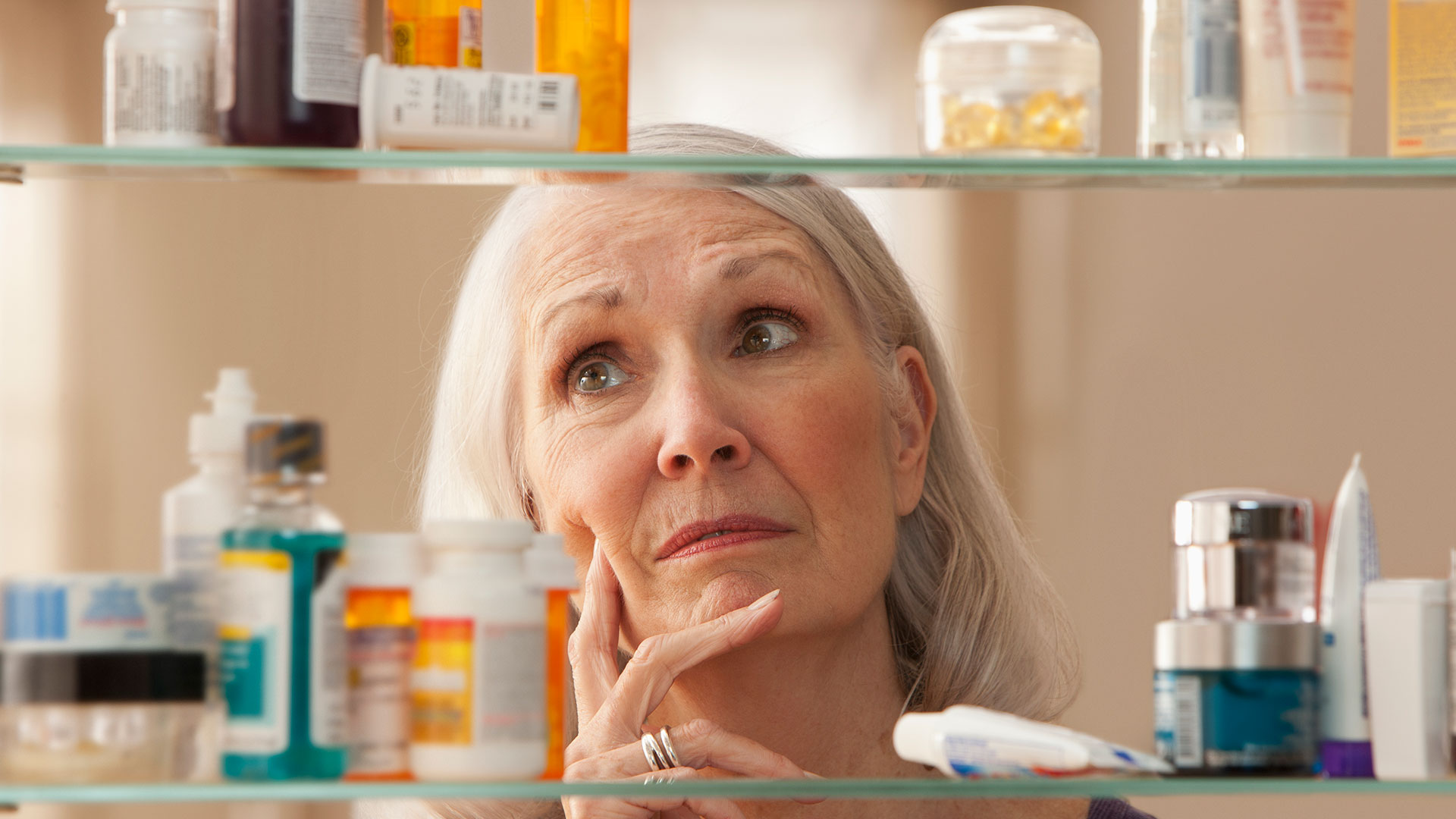What's Lurking in Your Medicine Cabinet?

If you haven't cleaned out your medicine cabinet lately, chances are you may find some old prescriptions or leftover medications that need to be discarded. Below are some tips to get you started. If you’re unsure about a medication, ask your doctor or pharmacist.
- Check expiration dates. Examine everything in your medicine cabinet including prescriptions, over-the-counter products, ointments, supplements and vitamins. Discard any item that is beyond the expiration date. Many medications lose their effectiveness after the expiration date. Some may even be toxic.
- Dispose of any items that have changed color, smell or taste. This includes any colors that have faded because they may have been exposed to too much light.
- Discard unmarked containers. If something is no longer in its original container and cannot be identified, get rid of it. In the future, try to keep medications in their original containers.
- Keep only what you need. Discard medications you no longer need, including those that caused allergic reactions or adverse side effects.
- Dispose of medications properly. Because of potential harm to the environment, you shouldn’t simply throw away medications or flush them down the toilet. Instead:
- Take the medications out of their original containers and place them in a sealable bag.
- Add an undesirable substance such as kitty litter, used coffee grounds or saw dust.
- Seal the bag and put it in the trash.
- Before discarding the medicine container, remove all identifying information on the prescription label. This will help protect your identity and the privacy of your personal health information.
Your local pharmacy, police department or drug enforcement agency may also be able to assist with disposing medications safely.
- Consider relocating your medicine cabinet. Many people don’t realize the bathroom cabinet is not the best place to store medication. The temperature and humidity changes caused by the shower can lower the potency of your medication. Medications should be kept in a cool, dry place away from children and pets.
- Consider keeping controlled medication locked in a secure location if others may have access to it. Some common examples include prescription medications for treating pain, anxiety or sleep.